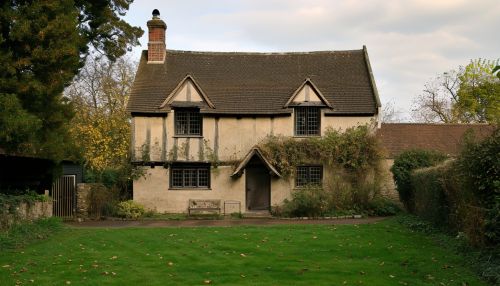Oliver Cromwell
Early Life
Oliver Cromwell was born on 25 April 1599 in Huntingdon, England, to Robert Cromwell and Elizabeth Steward. The Cromwells were a relatively wealthy family, owning a considerable amount of land in Huntingdonshire and elsewhere. Oliver's father, Robert, was the younger son of a knight, Sir Henry Cromwell, and a member of the gentry, while his mother, Elizabeth, was the daughter of a wealthy London leather merchant. Oliver was the only one of their seven children to survive infancy.


Education
Cromwell received his early education at the Huntingdon Grammar School, where he studied Latin and Greek. In 1616, he went on to attend Sidney Sussex College, University of Cambridge, where he studied law. However, his university career was cut short by the death of his father in 1617, forcing him to return home and take over the management of his family's estates.
Early Political Career
Cromwell entered politics in 1628, when he was elected Member of Parliament (MP) for Huntingdon in the Parliament of Charles I. He was a relatively obscure figure during his first stint in Parliament, and there is little record of his activities during this period. However, it is known that he was a strong critic of the King's policies, particularly his attempts to raise taxes without the consent of Parliament.
Military Career
With the outbreak of the Civil War in 1642, Cromwell took up arms against the King. He raised a cavalry troop, which became known as the "Ironsides" due to their effectiveness in battle. Cromwell's military genius was apparent from the outset. He was instrumental in several key Parliamentary victories, including the battles of Marston Moor and Naseby.
Lord Protector
Following the execution of Charles I in 1649, Cromwell became the de facto ruler of England. He was appointed Lord Protector of the Commonwealth of England, Scotland, and Ireland, a position he held until his death in 1658. During his tenure, Cromwell implemented a number of reforms aimed at improving the administration of the country. However, his rule was also marked by a harsh crackdown on Royalists and Catholics, which has made him a controversial figure in British history.
Death and Legacy
Cromwell died on 3 September 1658, likely from malaria or typhoid. His body was interred in Westminster Abbey, but was later exhumed and posthumously executed following the Restoration of the monarchy in 1660. Despite the controversy surrounding his rule, Cromwell's impact on British history is undeniable. He played a key role in the establishment of the principle of parliamentary sovereignty, which remains a cornerstone of the British constitution to this day.
